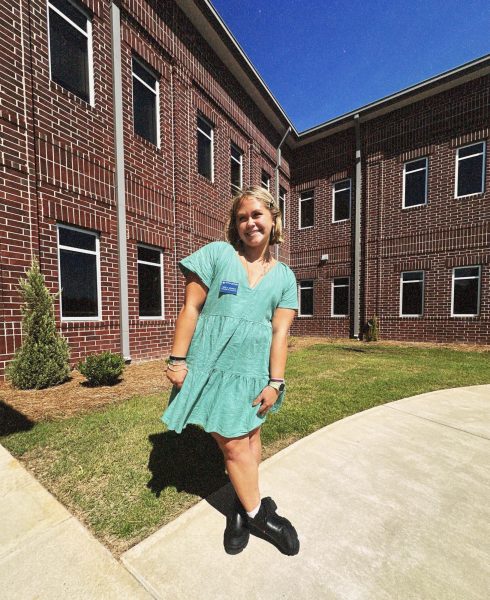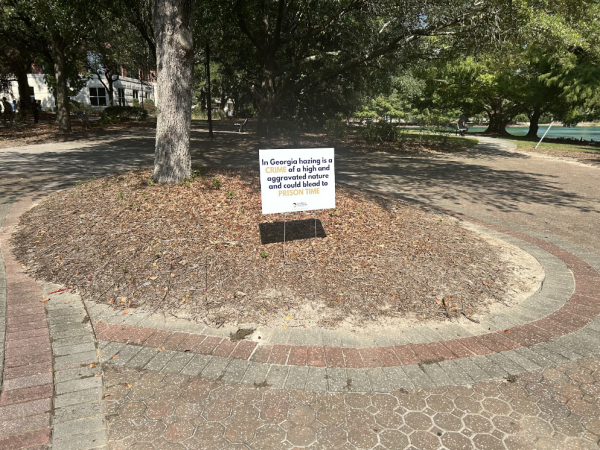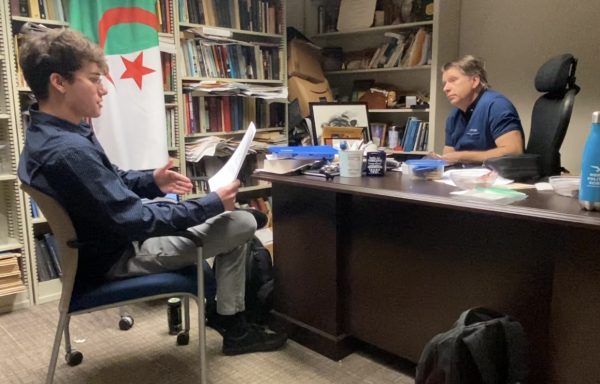OPINION | Young and Autoimmune
I’d be the first one to say that being a full time college student is no joke. Your mind needs to be in so many places at once and, like most students, it isn’t my only concern. My main concern as I became a full-time undergraduate student was something I didn’t expect to need to concern myself with as young as I am; my health.
I started getting sick not even a month before my 19th birthday. I graduated high school with a fresh ache in my legs and little concern. I never would have thought that I’d be a sophomore in college and that that pain in my legs had spread to every inch of my body.
As of late, my health issues are being chalked up to likely be an autoimmune disease. The American Autoimmune Related Disease Association (AARDA) says, “An autoimmune disease develops when a person’s immune system mistakenly identifies healthy cells as foreign cells and attacks them” (found here). Several diseases are considered autoimmune such as: Type 1 Diabetes, Lupus, Crohn’s Disease, Rheumatoid Arthritis, and several others.
Before getting sick and before educating myself on disabilities such as these, I was under the impression that these things didn’t come on unless there was a clear genetic precedent or more commonly someone was above a certain age. I was wrong and studies have shown that the rate of young people with autoimmune diseases are on the rise.
A study done by the National Institute of Environmental Health Sciences (NIEHS) has found that this is correct. A study conducted over several years and across 4 age groups shows that Americans are getting sick younger. In 1988-1991, an estimated 22 million 12-19 year olds were positive for Antinuclear Antibodies (ANA), a common indicator for autoimmune disease. When the same age range was looked at in 2011-2012, 41 million individuals were estimated to test positive for ANA (found here).
My age is the first thing used by doctors to say this can’t actually be happening to me. If someone isn’t aware of recent studies it makes sense for a doctor to not think I could have a legitimate illness such as this, it doesn’t make sense that I woke up a week before graduating high school with an ache in my legs and that everything fell from there.
I understand why a doctor would think: “Give her an antidepressant that sometimes helps pain” or I might even be able to understand why my first primary care physician psyched me out and scared me from pain meds by saying narcotics would give me violent nightmares.
I was barely a legal adult, I had a history of mental illness, and no one else in my family had had physical health issues until their 40’s. This was enough for me to tell myself it was okay for a grown man to ignore how 2 months of pain had changed me already, and tell me to go out and live; say it would be gone within a month, it was enough for me to not believe myself for far longer than I’d like.
But the thing is, older age isn’t a requirement for illness. It never has been and it certainly isn’t with autoimmune diseases like I likely have. These statistics and life experiences such as mine and many other young adults make autoimmune disease and disability a legitimate concern for college age students.
The National Stem Cell Foundation has said, “Because these diseases strike women three times more often than men, the Office of Research on Women’s Health at the NIH has named autoimmunity a major women’s health issue” (found here). The ratio of women to men with autoimmune diseases is significant. Some autoimmune diseases have an even larger difference than others, including Grave’s Disease, being 7 women for every 1 man and Systemic Lupus being 9 women for every 1 man (found here).
With this information in mind, I’d like to say what someone should have said to me when I first started getting sick. Listen to your body, self advocate until your voice is sore, and that if you have a concern about your health your doctor should too.
Some doctors may tell you not to google your symptoms, but as someone who only found a doctor to genuinely listen after a year of illness, research from reliable sources can be a valuable tool. If you are young and in pain daily or anything else of that concern, it isn’t supposed to be that way.
Reach out to your general practitioner or Georgia Southern’s health services.
To contact Health Services you can call (912) 478-5641 or email them at health@georgiasouthern.edu.









Brittany Jelinski • Sep 9, 2021 at 1:50 pm
You said:
“With this information in mind, I’d like to say what someone should have said to me when I first started getting sick. Listen to your body, self advocate until your voice is sore, and that if you have a concern about your health your doctor should too.
Some doctors may tell you not to google your symptoms, but as someone who only found a doctor to genuinely listen after a year of illness, research from reliable sources can be a valuable tool. If you are young and in pain daily or anything else of that concern, it isn’t supposed to be that way. ”
THANK YOU! I started getting sick around age 16. I kept being told I would “grow out of it.” Now I’m 30, my condition has severely worsened, and I’m STILL fighting to get the medical care that I deserve. I wouldn’t have made it as far as I have without doing a ton of reading on my own. Read those published medical articles and Google the words you don’t know. Connect with others who have similar symptoms as you and learn from them (Reddit has been a lifesaver for me). I knew what my chronic illnesses/conditions were before I received any diagnoses because doctors wouldn’t listen to me and kept telling me I was too young, it was too rare, etc. And now the diagnoses have happened and are still happening, and I was right.
Also, wow at the other comment on this article? Don’t… just don’t. Yikes.
A. Rahman Ford, JD, PhD • Jul 21, 2021 at 3:33 pm
I’m so sorry to hear about your struggles. I also know what it’s like to struggle with a disease while in college. The physical toll can be difficult to bear, and the emotional toll can be even heavier. Mainstream medicine has no answers for these illnesses and that can be really frustrating.
There are some dietary changes that have helped me a lot. Perhaps they can help you as well.
(1) organic-vegan diet with lots of fruits, green vegetables, nuts, berries, seeds;
(2) lots of probiotics (kombucha, sauerkraut juice, miso paste, kefir, Xtremebiotic, Zebora, MaryRuth, DrFormulas, etc.);
(3) foods/supplements high in prebiotic compounds (yacon syrup, matcha/cocoa/plantain/barley powders, quercetin/dandelion/berberine drops, flax oil, liquid chlorophyll, etc.);
(4) multi-vitamin/multi-mineral supplements (ionic/fulvic minerals, MaryRuth, Vital Earth, Good State, etc.);
(5) detox supplements (chlorella, spirulina, cilantro, bentonite clay, OxyPowder, parasite cleanse, marine phytoplankton, ionized/alkaline water, omega 3-6-9, etc.);
(6) fasting (to induce cellular autophagy and help good bacteria grow, read UPTON SINCLAIR’S “THE FASTING CURE”).
(7) comprehensive food allergy testing (ALCAT)
(8) see a holistic/integrative doctor for comprehensive vitamin.mineral/hormone/heavy metal testing
(9) read books by Natasha Campbell McBride
Please do your own research and apply what suits you. I have absolutely no doubt you can make a full recovery. I believe in you.